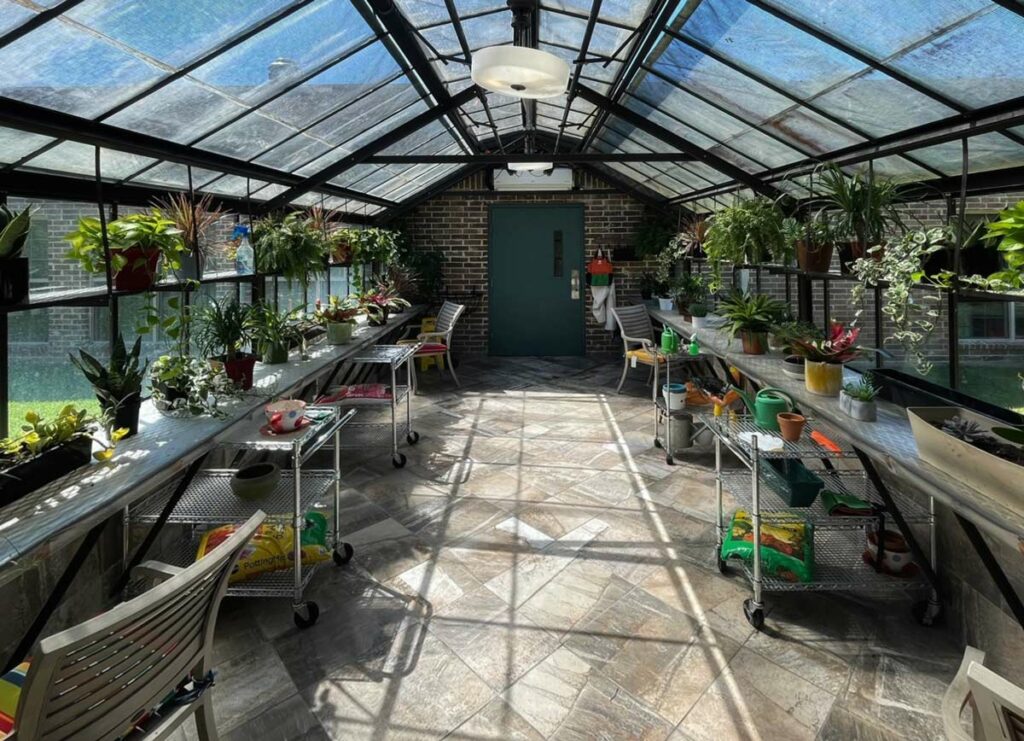Working in the dirt and witnessing the fruits of your labor is one of life’s finest rewards. It’s something many of us take for granted, but for seniors experiencing memory loss, gardening can be a place of solace. At Houston’s Proveer at Northgate, it’s a way of life.
As noted biographer Jenny Uglow mentioned, “We might think we are nurturing our garden, but of course, it’s our garden that is really nurturing us.”
What gives seniors a green thumb?
Gardening does not need to involve reaping award-winning tomatoes or growing the most beautiful rose. Gardening is about being in nature, being in a positive mindset, and being in the moment. Anyone can participate and feel those rewards almost immediately.
A study from Australia discovered that “gardening as a leisure pursuit may maintain or promote an older adult’s psychosocial and physical functioning and therefore enhance their quality of life.” While 69 percent of participants said they felt about the same after gardening for one year, 16 percent believed the activity improved their lives.
For seniors, the health benefits of cultivating include:
- Exposure to soil containing Mycobacterium vaccae, the good bacteria for a better immune system
- Exercise and strength building
- Soaking up vitamin D
- Enjoying nutritious foods
Why is gardening good for seniors with memory loss?
For those living with Alzheimer’s and dementia, activating the senses can do wonders for their mood and appreciation for life.
| Sight |
|
| Sound |
|
| Touch |
|
| Smell |
|
| Taste |
|
How does Proveer at Northgate provide gardening for those with dementia?
Gardening gives people a sense of purpose. It’s an activity that promotes social interaction and belonging. It can help people experiencing dementia learn something new or relearn something they once loved.
With Proveer at Northgate, we maintain a 1200 square foot greenhouse with the help of Interior Landscaping of Houston.

Working with the vegetation improves mood and increases the quality of life for our residents.
What are other benefits of gardening for seniors?
- Gardening can lower the risk of dementia. The level of hand/eye coordination associated with sensory awareness is a factor in warding off cognitive impairments. For example, digging while responding to conversation keeps the mind keen.
- Serotonin levels increase with gardening. People with dementia experience changes in their sleep patterns, mood, and appetite due to decreasing levels of serotonin. Findings from Johns Hopkins suggest stimulating more serotonin early on can reduce the chance for dementia.
- Increased physical activity and use of fine motor skills can prevent or slow dementia progress. Gardening is just one of the many activities Proveer at Northgate provides for our residents. Gardening is a perfect exercise in promoting activity and fine motor skills. There is encouraging evidence suggesting that engaging these qualities can reduce Alzheimer’s effects.
Where can I learn more about gardening for people with Alzheimer’s and dementia?
